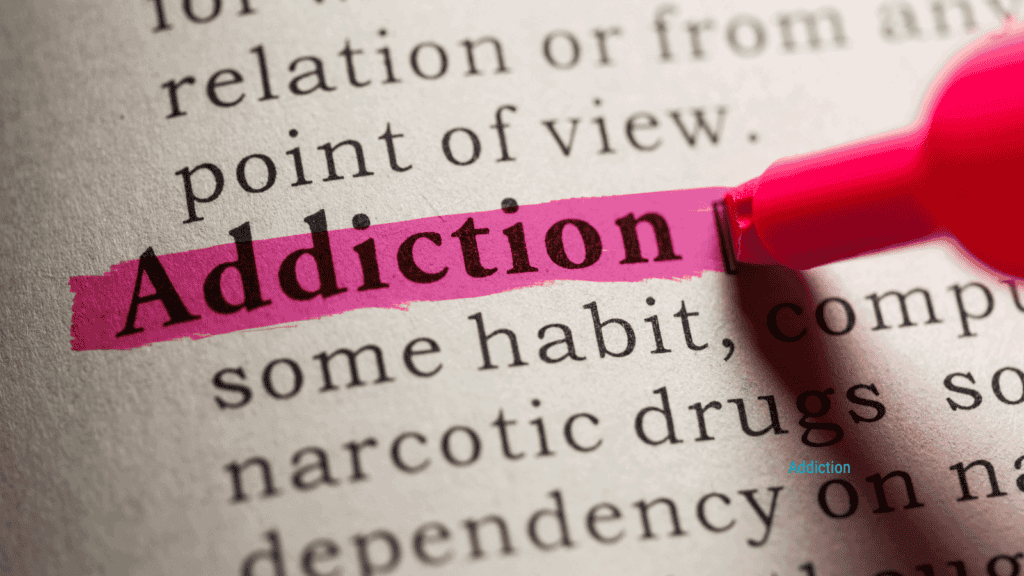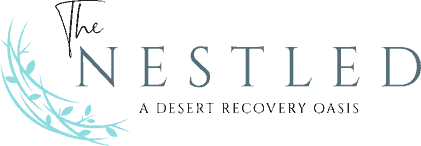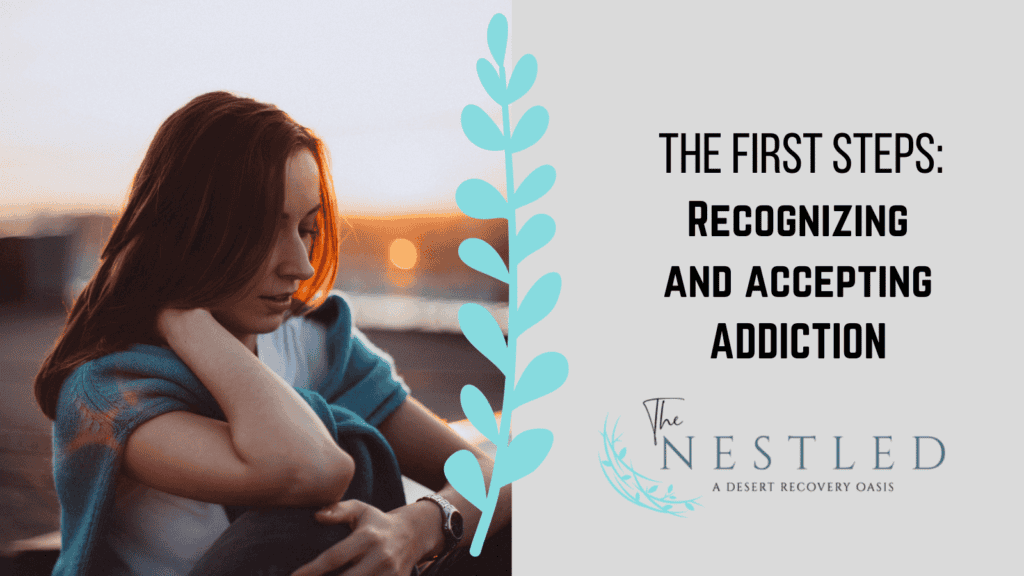The first step to a new life: Accepting Addiction
Every journey begins with a single step, and the path to recovery from addiction is no different. For many, the most challenging step isn’t the decision to seek treatment or the commitment to a rehab program; it’s the realization and acceptance that there’s a problem to begin with. It is important understand the weight of this realization and the courage it takes to face it head-on.

The Many Faces of Addiction
Addiction is a chameleon, often manifesting in ways we might not immediately recognize. It’s not just about the stereotypical images of illicit drug use. Addiction can encompass a range of substances and behaviors:
- Prescription Medications: Opioids, sedatives, and stimulants can become addictive, especially when used outside of medical guidance.
- Alcohol: Often normalized in social settings, excessive or dependent alcohol consumption can lead to severe addiction.
- Behaviors: Activities like gambling, shopping, or even internet usage can become compulsive, leading to behavioral addictions.
- Over-the-counter Drugs: Some might misuse cough syrups, pain relievers, or other readily available medications, leading to dependency.
Understanding the broad spectrum of addiction is crucial. It helps us recognize that addiction isn’t about a lack of moral fiber or willpower; it’s a complex interplay of psychological, environmental, and biological factors.

Signs You Might Be Struggling
Recognizing the signs of addiction in oneself can be a challenging and introspective process. While each person’s experience with addiction is unique, there are common indicators that might suggest a struggle:
- Physical Indicators: Changes in weight, sleep patterns, or appearance. Frequent health issues or unexplained injuries. Neglecting personal hygiene or appearance.
- Emotional Signs: Increased irritability, mood swings, or feelings of guilt and shame. Experiencing anxiety or depression, especially when the substance or behavior is unavailable.
- Behavioral Clues: Withdrawing from social activities or hobbies once enjoyed. Lying or being secretive about one’s activities. Increasing tolerance, leading to higher consumption of the substance or more time spent on the behavior.
- Financial Red Flags: Unexplained expenses, borrowing money, or financial difficulties stemming from the cost of maintaining the addiction.
- Neglecting Responsibilities: Missing work, school, or family obligations. Declining performance in professional or academic settings.

The Power of Denial
Denial is a potent defense mechanism, especially when confronting something as stigmatized as addiction. It’s a protective barrier, shielding us from the painful truth:
- Rationalizing Behavior: “I only drink socially,” or “Everyone I know does it, it’s not a big deal.”
- Minimizing the Issue: “I can stop anytime I want,” or “It’s just a phase, I’ll grow out of it.”
- Blaming External Factors: “I only use because of my stressful job,” or “It’s just to help me cope with my relationship issues.”
- Avoidance: Actively avoiding conversations about the substance or behavior, or becoming defensive when confronted.
Acceptance: The Turning Point
Coming to terms with one’s addiction is a transformative moment. It’s the juncture where acknowledgment meets action, and the path to recovery becomes clear:
- Self-Reflection: Taking a candid look at one’s life, the impact of the addiction, and the potential future if the path remains unchanged.
- Seeking Support: Whether it’s confiding in a trusted friend, family member, or professional, acceptance often leads to the first outreach for help.
- Understanding the Journey Ahead: Recognizing that recovery is a process, not a destination. It will have its challenges, but with acceptance as the foundation, the journey becomes manageable.

Benefits of Early Recognition
The sooner addiction is recognized and accepted, the smoother the path to recovery can be:
- Physical Health: Early intervention can prevent or mitigate many of the health complications associated with prolonged substance abuse.
- Mental Well-being: Addressing addiction early can reduce the psychological toll, from anxiety and depression to strained relationships.
- Financial Stability: Early recognition can prevent the deep financial pitfalls that often accompany advanced addiction, from job loss to significant medical expenses.
- Rebuilding Relationships: The sooner one starts the recovery process, the quicker relationships can begin to heal, trust can be reestablished, and bonds can be strengthened.
How The Nestled Can Help
We believe in the power of personalized care. Recognizing and accepting addiction is a deeply personal journey, and the path to recovery should be tailored to the individual:
- Personalized Treatment Plans: Every individual’s journey with addiction is unique. We craft treatment plans that address the specific needs, challenges, and goals of each person.
- Expert Care Team: Our team of professionals, from therapists to medical staff, are trained to handle the complexities of addiction. They provide guidance, support, and the expertise needed for a successful recovery.
- Supportive Environment: The Nestled offers a nurturing environment where individuals can focus on their recovery without judgment or distractions. Our facilities are designed to be a haven of healing and renewal.
- Community Building: Recovery is not just about individual healing; it’s about building connections. We offer group therapies, workshops, and activities that foster a sense of community and mutual support.
Embracing a New Beginning: Your Path Forward
Accepting one’s addiction is like opening a door to a new chapter of life. It’s an invitation to rediscover oneself, to rebuild relationships, and to embrace a future filled with potential:
- Setting New Goals: With the weight of addiction acknowledged, individuals can focus on setting and achieving new life goals, whether personal, professional, or relational.
- Rediscovering Passions: Many find that recovery allows them to reconnect with hobbies, interests, and passions that were overshadowed by their addiction.
- Building Stronger Bonds: Recovery often leads to deeper, more meaningful relationships with loved ones, built on trust, understanding, and mutual growth.
From Recognition to Renewal: Your Journey with The Nestled
The path from recognizing one’s addiction to fully embracing recovery is a transformative one. It’s a journey of challenges, insights, growth, and ultimately, renewal. At The Nestled, we’re honored to be a part of this journey with countless individuals, guiding, supporting, and celebrating every milestone.
If you’re on the cusp of recognizing your addiction or have already taken that brave step, let The Nestled be your partner in the journey ahead. Reach out to us today, and together, let’s pave the path to a brighter, healthier future.

Share This Post




